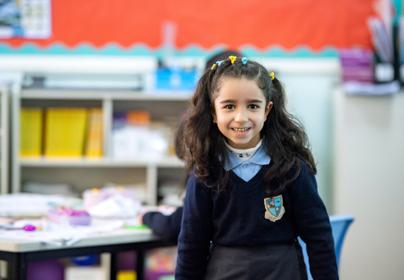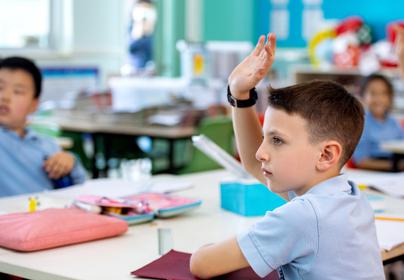
What another busy week the EYFS children have had! Pre-Nursery has been learning about baby animals, while using their binoculars to spot animals on the farm. Nursery has been moving like minibeasts and learned about the benefits of healthy eating and being active. Reception has been learning about the world of mythical creatures and consonant letter digraphs in their phonics class.
Pre-Nursery
This week Pre-Nursery’s farm journey continued with a book called ‘Who’s on the farm?’ by Julia Donaldson. We have been learning about baby animals and matching mummy and baby in our mathematical activities. To develop our small fine motor skills, Pre-Nursery have been exploring how to milk a cow through sensory play!
Nursery
This week in Nursery we have been moving and dancing like Minibeasts. We have fluttered, hoped, crawled and wriggled!
After reding the story ‘The very lazy ladybird’ and ‘The very greedy bee’ Nursery talked about healthy foods and the importance of being active. A very productive week for Nursery
Reception
We had so much fun in our little Friday social this week. It was lovely to see the children from both classes interacting with each other and we enjoyed playing the movement games. In Topic this week, we have learnt about mythical creatures. The children really enjoyed reading stories about a mermaid, Loch Ness Monster and a unicorn, using their imagination to create their own mythical creature and then testing their knowledge in a quiz.
In Phonics, we continued with Phase 3 and focused on ‘ch’ and ‘sh’ The children learned to write it and practiced reading words and sentences with it. We also learnt the tricky word ‘was’. In Comprehension, we looked at the story ‘The Singing Mermaid’ by Julia Donaldson. The children displayed their understanding of the story by answering questions and True or False statements. They were also encouraged to use different words to describe the mermaid and draw their own.
In Maths, we initially looked at ‘subtraction’ and enjoyed playing the interactive games and making our own number sentences. Towards the end of the week, we introduced the children to the concept of ‘one less than’ using a number line. The children grasped this new concept very well and participated with enthusiasm.
Thank you again for your continuous support and encouragement with your child’s e-learning during this uncertain and challenging time. We really appreciate it!

With school closures still in place it is very important to remember that physical activity is an important part of the online school day because it can help students stay mentally focused and concentrated on their online learning. When it comes to being active at home, the key is finding activities students and family members can enjoy doing together. Staying active during these times is very important as it has both physical and mental benefits. It can help improve students' fitness levels, make them stronger and helps them regain control in their lives as well as help reduce symptoms of both anxiety and stress.
One of the key areas I have been most impressed with by our Primary students is their passion and determination to stay active throughout these times. Every single student has shown great energy, enthusiasm, and high intensity to push through their online workouts with their PE teachers. What’s more, I’m very pleased to see that our Primary students have been gaining and developing important knowledge and information on the different ways they can stay active whilst at home. The confidence I have seen from all our Primary students surrounding our online learning has been impressive and to still be fully engaged just goes to show the commitment they have to stay fit and healthy.

Food has been on everyone’s mind at the moment in lockdown in Shanghai. As part of our ‘vegetables’ topic, this week in KS3 non-native Mandarin class, students have worked together on a project called ‘Vegetable Guidance for Lockdown Life in Shanghai’. This guidance includes key information about a range of common vegetables, such as how accessible they are at the moment, the best way to preserve them, how long they may last and suggested ways to cook them, so that readers of our guidance may plan their use of the vegetables sensibly. Students have put together the information based on their research and were very excited to present their findings in Mandarin. We hope everyone in our community is having sufficient vegetables at home and will find our work useful!




